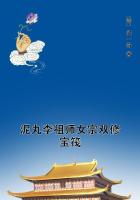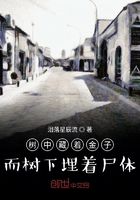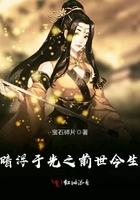Before dinner that day there was some conversation on the subject of dress; and the Empress offered the services of M. Duplan, her hairdresser, in order to give her ladies some lessons in the French toilet. Her proposition was accepted; and the queen came out soon after from the hands of M. Duplan, better dressed, no doubt, and her hair better arranged, but not beautified, however, for the talent of the hairdresser could not go as far as that.
The Prince of the Asturias, now King Ferdinand VII., made an unpleasant impression on all, with his heavy step and careworn air, and rarely ever speaking.
Their Spanish Majesties as before brought with them the Prince de la Paix, who had not been invited by the Emperor, and whom for this reason the usher on duty detained outside of the dining-hall. But as they were about to be seated, the king perceived that the prince was absent. "And Manuel," said he quickly to the Emperor, "and Manuel, Sire!" Whereupon the Emperor, smiling, gave the signal, and Don Manuel Godoi was introduced. I was told that he had been a very handsome man; but he showed no signs of this, which was perhaps owing to the bad treatment he had undergone.
After the abdication of the princes, the king and queen, the Queen of Etruria, and the Infant Don Franciso, left Bayonne for Fontainebleau, which place the Emperor had selected as their residence while waiting until the chateau of Compiegne should be put in a condition to make them comfortable. The Prince of the Asturias left the same day, with his brother Don Carlos and his uncle Don Antonio, for the estates of Valencay belonging to the Prince of Benevento. They published, while passing through Bordeaux, a proclamation to the Spanish people, in which they confirmed the transmission of all their rights to the Emperor Napoleon.
Thus King Charles, freed from a throne which he had always regarded as a heavy burden, could hereafter give himself up unreservedly in retirement to his favorite pursuits. In all the world he cared only for the Prince de la Paix, confessors, watches, and music; and the throne was nothing to him. After what had passed, the Prince de la Paix could not return to Spain; and the king would never have consented to be separated from him, even if the remembrance of the insults which he had personally received had not been powerful enough to disgust him with his kingdom. He much preferred the life of a private individual, and could not be happier than when allowed without interruption to indulge his ****** and tranquil tastes. On his arrival at the chateau of Fontainebleau, he found there M. Remusat, the first chamberlain; M. de Caqueray, officer of the hunt;
M. de Lugay, prefect of the palace; and a household already installed.
Mesdames de la Rochefoucault, Duchatel, and de Lugay had been selected by the Emperor for the service of honor near the queen.
The King of Spain remained at Fontainebleau only until the chateau of Compiegne could be repaired, and as he soon found the climate of this part of France too cold for his health, went, at the end of a few months, to Marseilles with the Queen of Etruria, the Infant Don Francisco, and the Prince de la Paix. In 1811 he left France for Italy, finding his health still bad at Marseilles, and chose Rome as his residence.
I spoke above of the fondness of the King of Spain for watches. I have been told that while at Fontainebleau, he had half a dozen of his watches worn by his valet de chambre, and wore as many himself, giving as a reason that pocket watches lose time by not being carried. I have also heard that he kept his confessor always near him, in the antechamber, or in the room in front of that in which he worked, and that when he wished to speak to him he whistled, exactly as one would whistle for a dog. The confessor never failed to respond promptly to this royal call, and followed his penitent into the embrasure of a window, in which improvised confessional the king divulged what he had on his conscience, received absolution, and sent back the priest until he felt himself obliged to whistle for him again.
When the health of the king, enfeebled by age and gout, no longer allowed him to devote himself to the pleasures of the chase, he began playing on the violin more than ever before, in order, he said, to perfect himself in it. This was beginning rather late. As is well known, he had for his first violin teacher the celebrated Alexander Boucher, with whom he greatly enjoyed playing; but he had a mania for beginning first without paying any attention to the measure; and if M. Boucher made any observation in regard to this, his Majesty would reply with the greatest coolness, "Monsieur, it seems to me that it is not my place to wait for you."
Between the departure of the royal family and the arrival of Joseph, King of Naples, the time was passed in reviews and military fetes, which the Emperor frequently honored with his presence. The 7th of June, King Joseph arrived at Bayonne, where it had been known long in advance that his brother had summoned him to exchange his crown of Naples for that of Spain.
The evening of Joseph's arrival, the Emperor invited the members of the Spanish Junta, who for fifteen days had been arriving at Bayonne from all corners of the kingdom, to assemble at the chateau of Marrac, and congratulate the new king. The deputies accepted this somewhat sudden invitation without having time to concert together previously any course of action; and on their arrival at Marrac, the Emperor presented to them their sovereign, whom they acknowledged, with the exception of some opposition on the part of the Duke of Infantado, in the name of the grandees of Spain. The deputations from the Council of Castile, from the Inquisition, and from the army, etc., submitted most readily. A few days after, the king formed his ministry, in which all were astonished to find M. de Cevallos, who had accompanied the Prince of the Asturias to Bayonne, and had made such a parade of undying attachment to the person of the one whom he called his unfortunate master; while the Duke of Infantado, who had opposed to the utmost any recognition of the foreign monarch, was appointed Captain of the Guard. The king then left for Madrid, after appointing the Grand Duke of Berg lieutenant-general of the kingdom.















